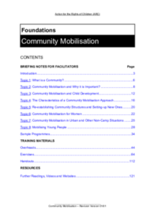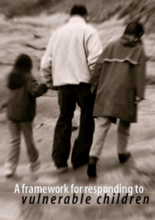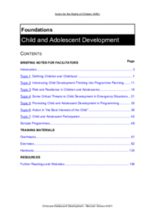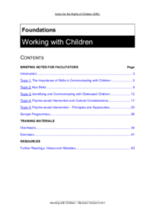Displaying 501 - 506 of 506
Discusses the importance, benefits and challenges to community mobilisation for refugees and other displaced persons, with a particular emphasis on children. Includes facilitators notes, participatory exercises, overheads, and handouts.
Discusses the value of the UK Children in Need assessment framework for use by Victorian Family Services (Australia).
Resource pack for a course in child and adolescent development. Emphasis on identifying threats to childhood development and strategies to promote development in adverse conditions. Includes facilitators notes, participatory exercises, overheads, and handouts.
Resource pack for a course introducing the skills necessary for communicating with children. Includes facilitator’s notes, exercises, and handouts, as well as a list of relevant resources.
In this video, One Sky Foundation describes its work to strengthen families and keep children out of children's homes in the Thai-Burma border district of Sangkhlaburi.
This substudy aimed to contribute to a larger study—the Ripple project—through exploring the experiences of practitioners working across child welfare and mental health services regarding collaboration in the care of young people; and to identify practices that might enhance collaborative work and improve mental health outcomes.




